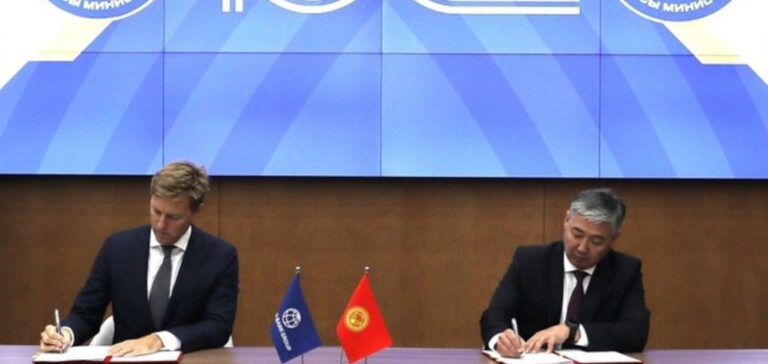Kyrgyzstan and the World Bank sign agreements totalling $13.6 million to update the feasibility study for the Kambarata-1 hydropower plant.
This includes $2.6 million in grants and $11 million in loans, provided by the International Development Association.
The funding covers physical modeling, surveys, site studies and laboratory tests to prepare for construction.
The plant, with a planned capacity of 1.86 GW, has an estimated cost of between $4.5 and $5 billion.
Kambarata-1 aims to meet Central Asia’ s growing energy needs while managing regional water concerns.
The design update is expected by the end of 2024, with construction scheduled to start shortly thereafter.
This project is strategic for strengthening energy security and regional cooperation.
Tripartite cooperation structure for Kambarata-1
The project involves cooperation between Kazakhstan, Kyrgyzstan and Uzbekistan, who will set up a joint company.
Kyrgyzstan will hold 34% of the shares, while Kazakhstan and Uzbekistan will each have 33%.
This partnership aims to share costs and benefits, while mobilizing financing via loans and grants from international financial institutions and commercial banks.
The World Bank coordinates the steering committee overseeing the financing, in collaboration with organizations such as the Asian Infrastructure Investment Bank, the Asian Development Bank, the European Bank for Reconstruction and Development, and the OPEC Fund.
This committee is responsible for defining the financial structure and ensuring the economic viability of the project.
Financing challenges and development prospects
Funding requirements for Kambarata-1 remain high.
Despite the commitment of the Kyrgyz government, which has already secured $1 billion, additional funds are needed to complete the project.
The aim is to commission the first production unit within eight years, providing a reliable new source of energy for the region.
Kambarata-1 represents a key investment for Kyrgyzstan and its partners.
It is not only a response to immediate energy needs, but also an initiative to stabilize tensions surrounding water resources.
The support of multilateral banks and investors is crucial to the success of this major project.






















